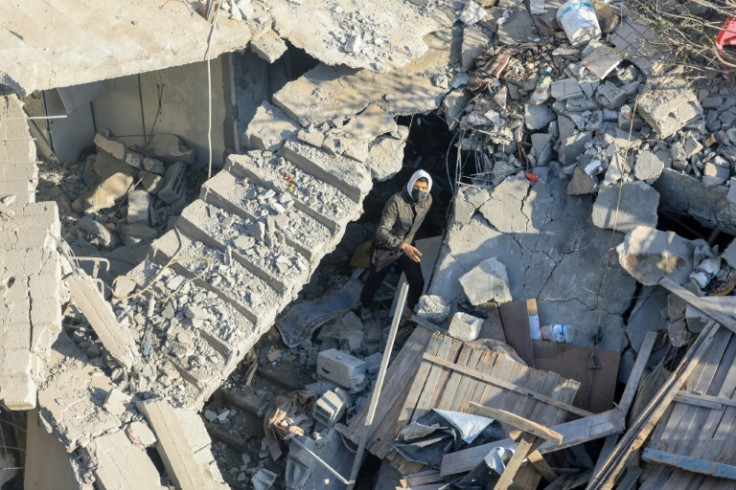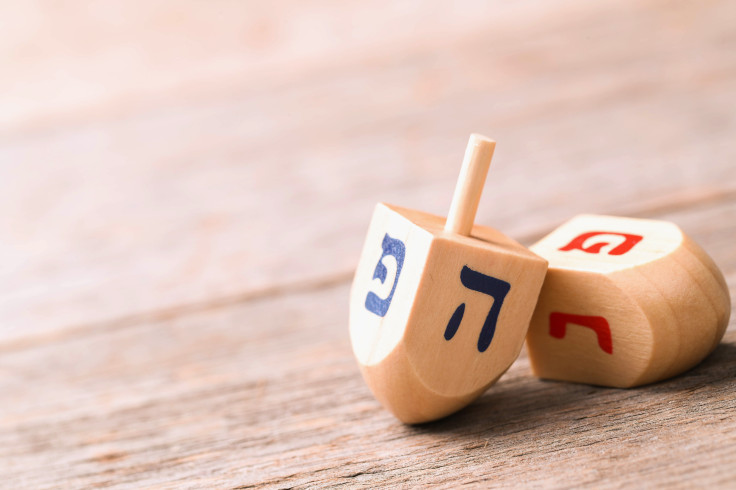
Hanukkah, also known as Chanukah or Januca, in Spanish, is the season of the year when Jewish communities celebrate the miracle of finding the light among darkness, a metaphor of hope in somber times
Judaism's "festival of light" is observed every year starting on the 25th of Kislev, the third month of the (lunar) Hebrew calendar, corresponding to late November or early December in the Gregorian calendar. In 2019, it coincided with Christmas, and in 2023, it aligned with December 7th.
The festival commemorates the rededication of the Jerusalem Temple in the 2nd century BC, after a small group of Jewish fighters liberated it from occupying foreign forces. According to tradition, the Maccabees faced a shortage of purified oil needed to illuminate the temple's large lanterns.
That was when the miracle occurred. A tiny flask they had left endured for a complete eight days and nights.
In honor of this historical tale, Jews gather with family and friends to light a candle on eight consecutive nightfalls. Each day, they light one additional candle in the menorah — a multibranched candelabra.
Women in the household are expected to avoid work until the candles have burned for at least half an hour. Some families opt to abstain from using technology, while others watch dedicated Hanukkah films and series with their families.
Meanwhile, children are encouraged to play with the dreidel, a four-sided spinning top with Hebrew letters, believed to have been used for Torah study in ancient times.
What's the meaning of Hanukkah?

In 2023, the Hanukkah holiday holds significant importance for the Jewish community, symbolizing resilience. This celebration coincided with the aftermath of a Hamas attack in Israel on October 7th.
As far as is known, Hamas militants were responsible for the deaths of about 1,200 individuals, predominantly civilians, with many citizens still held as hostages. Israel's response to terrorism ended in more than 17,000 Palestinian casualties, according Gaza's authorities.
Who celebrates Hanukka?
Despite Hanukkah may be celebrated worldwide by Jewish families, it is not considered the most significant Jewish festival, and rabbis often emphasize instead the importance of other sacred occasions, like Rosh Hashanah (the Jewish New Year) and Yom Kippur. In fact, many large Jewish communities around the world don't pay much attention to this celebration.
So where does that perception come from? The idea may stem from the proximity of Hanukkah to Christmas, which has fueled marketing campaigns to sell products by installing the idea of Hanukkah as the "Jewish Christmas."
Hanukkah 2023: gift-giving tradition in the U.S.

While gift-giving during Hanukkah remains primarily a North American custom, it has gained acceptance in numerous other countries, including Mexico and Colombia. The ease of adoption underscores the global appeal of this tradition.
That's why giving presents for Hannukah time is primarily a North American custom, though it has been easily adopted in many other countries, especially in Latin America.
Colombian Hanukkah: patacones instead of latkes
Although the Hanukkah traditions in Colombia mostly align with those in the United States, a unique initiative has emerged within the community. In Santa Marta, Colombia, the Chavurah Shirat Hayyam, a recently established Jewish community, has introduced its own twist to the traditional Hanukkah celebration
Instead of consuming the customary fried potato latkes, they have adopted Patacones, which are fried plantains, as their Hanukkah culinary tradition.
Hanukkah in Mexico: trompos and piñatas
In Mexico, dreidels are an important Hanukkah tradition, as Mexican American writer Ilan Stavans explained in a recent interview with NBC News. He co-authored the children's book "The Mexican Dreidel," which focuses on how toys, such as dreidels or Mexican ´trompos', make it easier for children to build strong ties with their heritage and to connect with each other.
In addition, Stavans, who was raised in Mexico speaking Spanish and Yiddish, pointed out that there is a unique Mexican twist to the traditional customs for the Festival of Lights: "Every night, cousins would come to our house, or we would go to our grandmother's house to play dreidel and have a piñata — this is a tradition in Mexico embraced by both Jews and non-Jews during their holidays."
© 2025 Latin Times. All rights reserved. Do not reproduce without permission.




